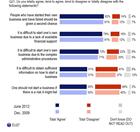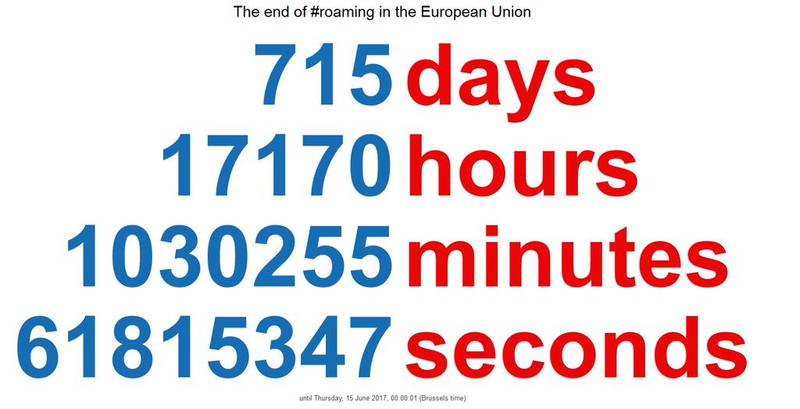Europe Is Losing Entrepreneurial Initiative and Needs Cultural Change
Zhaneta Kuyumdzhieva, January 16, 2013
 "Entrepreneurs are the heroes of our time". These words belong to Antonio Tajani, vice president of the European Commission responsible for the policy in the area of entrepreneurship and industry. They sound a bit far-fetched only at first hearing because statistics confirms them fully. According to Eurobarometer data, in the past three years, the number of citizen who wish to work for themselves has dropped from 47% to 37%. Since 2004 the share of people who are inclined to private business initiatives has declined in 23 out of 27 member states. The four countries where the opposite trend exists are the Czech Republic, Lithuania, Latvia and Slovakia. To compare, it is worth mentioning that in the US and China the people with entrepreneurial ambitions are 51% and 56% respectively.
"Entrepreneurs are the heroes of our time". These words belong to Antonio Tajani, vice president of the European Commission responsible for the policy in the area of entrepreneurship and industry. They sound a bit far-fetched only at first hearing because statistics confirms them fully. According to Eurobarometer data, in the past three years, the number of citizen who wish to work for themselves has dropped from 47% to 37%. Since 2004 the share of people who are inclined to private business initiatives has declined in 23 out of 27 member states. The four countries where the opposite trend exists are the Czech Republic, Lithuania, Latvia and Slovakia. To compare, it is worth mentioning that in the US and China the people with entrepreneurial ambitions are 51% and 56% respectively.
Entrepreneurship, especially in the "lighter category" - small and medium-sized enterprises (SME) - is a kind of solution to the problem with unemployment in large scale. In the EU that type of companies is over 21 million. According to Eurostat, since 2009, the SMEs are the most important source of jobs creation because they create circa 4 million jobs per year in Europe. The crisis in the past years has become a reason 25 million people to lose their jobs. It is the most frequent and by the way fully valid reason a citizen to refrain from undertaking individual business initiatives for fear of bankruptcy and unsustainable income, risk of losing property, home, etc.
Aside from the purely psychological reasons for the lack of a desire among the Europeans for self-employment, there are real barriers that prevent the unleash of the potential of unemployed citizens to be properly used. A Eurobarometer poll about entrepreneurship in the EU and beyond shows that 79% of the respondents outline as a motive the lack of financial assistance, 72% do not undertake any actions because of  the complexity of the administrative process and 51% believe that it is difficult to find sufficient information about how to start their own business.
the complexity of the administrative process and 51% believe that it is difficult to find sufficient information about how to start their own business.
Responding to all these obstacles, the European Commission presented recently a plan for support of entrepreneurs and for decisive changes in the entrepreneurial culture in the EU. In the Commission document it is pointed out that "in order for entrepreneurship to become a motor of growth in our economy, Europe needs an overall, deep and cultural change". Between 15 and 20% of the participants, who during their high school education took part in programmes for establishment of a small enterprise, later find their way toward own economic activities. "Investment in education, directed at entrepreneurship, delivers the highest returns", sounds like a slogan for the first strategic goal the plan puts forward for the period by 2020. In that direction, part of the actions the Commission will undertake are:
- Development of a pan-European educational initiative, aimed at entrepreneurship;
- Raising awareness of training in that area in formal and informal environment;
- Acquainting universities and institutions in the medium stage of education with the working framework for directing toward entrepreneurship, etc.
And the member states are invited to include by 2015 entrepreneurship as a key task in the primary, middle, high and professional education to offer an opportunity to young people to have at least one practical entrepreneurial experience before graduating from obligatory education, like taking responsibility on such a project for a company or social activities. The European Social Fund will also be at disposal of the national governments to popularise among young people self-employment as an option and as part of their national employment programmes.
Together with educational changes, the Commission envisages another six key areas for work on removing existing barriers.
Financing
Via the capabilities of the European Social Fund and the European Regional Fund for Development will be created a market for micro-financing. Work is already ongoing on the possibility SMEs to be able to attract funding via direct private investment like bonds and stocks, group financing, etc.
Support for decisive moments
The ways new enterprises can be assisted in decisive moments are related to reducing obligations and costs for harmonising with the complex tax legislation and the standard requirements. On the fifth year of their existence, almost 50% of companies suspend their activities. For this reason, the Commission invites the national governments to allocate more money on management training, building of partner networks, potential clients, suppliers, as well as implementing the tasks under the two Acts of the Single Market.
Helping business in the digital area
 Regarding the importance of digital technology for traditional companies, the Commission envisages as early as of this year to propose a number of initiatives aimed at enhancing competences and skills of beginner entrepreneurs and acquainting SMEs with innovative business-models in the digital sector. Web-based companies, for their part, will be able to take advantage from the special clubs of web-entrepreneurs and partnerships for exchange of experience, technology and services.
Regarding the importance of digital technology for traditional companies, the Commission envisages as early as of this year to propose a number of initiatives aimed at enhancing competences and skills of beginner entrepreneurs and acquainting SMEs with innovative business-models in the digital sector. Web-based companies, for their part, will be able to take advantage from the special clubs of web-entrepreneurs and partnerships for exchange of experience, technology and services.
Facilitating the procedure for transfer of companies
The Commission plan for 2013-2014 is to create manuals of the most efficient programmes for facilitating the transfer of companies, including measures for expansion of the markets for enterprises. The member states are called upon to perfect the legal, administrative and tax conditions for transfer of SMEs throughout Europe and to use the European funds in support of entrepreneurs.
A second chance for the insolvents
According to polls, in 96% of the insolvency cases of enterprises so far the reason is overdue of payments or other operational problems. In some member states the insolvency procedure is so prolonged that entrepreneurs give up and rarely undertake another business initiative. That is why, under the current plan, the Commission again (after the Competitiveness Council discussed this issue in May 2011) invited the member states to reduce, when possible, the time for discharge and for debt settlement of honest entrepreneurs after bankruptcy to maximum three years by 2013. National governments should also offer services on restructuring and consulting businesses for bankruptcy prevention, as well as to create programmes to boost and monitor entrepreneurs who decide to take a second chance.
Simplification of administrative burdens
The Commission has proposed measures to reduce the administrative burden to  over 25% (estimated to cost 30.8 billion euros). It is estimated that regulatory burden amounts to totally 123.8 billion euros. There is a significant progress in terms of updating customs and tax legislation. Nonetheless, to support the needs of small enterprises in November 2011 the Commission adopted a Report on reducing red tape for SMEs and in October 2012 a consultancy was established on identifying the 10 most burdening regulations in the European legislation. In the plan for 2020, work is envisaged on reducing red tape to continue and regulatory requirements for businesses to become clearer and simpler.
over 25% (estimated to cost 30.8 billion euros). It is estimated that regulatory burden amounts to totally 123.8 billion euros. There is a significant progress in terms of updating customs and tax legislation. Nonetheless, to support the needs of small enterprises in November 2011 the Commission adopted a Report on reducing red tape for SMEs and in October 2012 a consultancy was established on identifying the 10 most burdening regulations in the European legislation. In the plan for 2020, work is envisaged on reducing red tape to continue and regulatory requirements for businesses to become clearer and simpler.
Apart from the above mentioned areas, the action plan of the European Commission includes also enhancing work with entrepreneurs in certain groups who meet difficulties in their attempts to develop independent economic activity. Such vulnerable citizens are women who are 34.4% of all self-employed, the elderly people whose experience would be useful for young generations who are interested in private initiative, immigrants for whom self-employment would be a way for better social inclusion and realisation, and jobless people who could be assisted with training, tutorship and other programmes.
 Toomas Hendrik Ilves | © European Parliament
Toomas Hendrik Ilves | © European Parliament | © European Commission
| © European Commission | © EU
| © EU